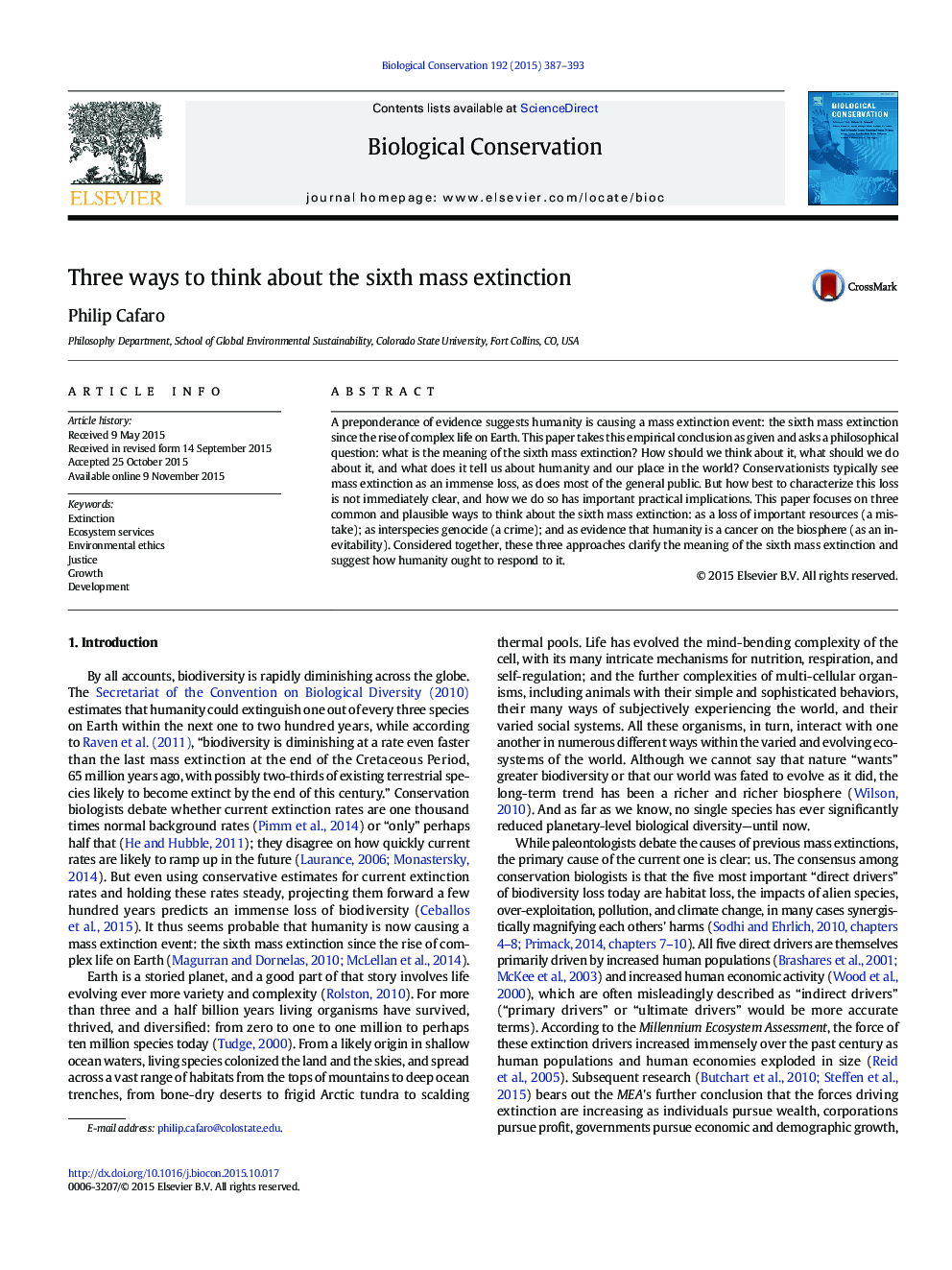| Article ID | Journal | Published Year | Pages | File Type |
|---|---|---|---|---|
| 6298615 | Biological Conservation | 2015 | 7 Pages |
A preponderance of evidence suggests humanity is causing a mass extinction event: the sixth mass extinction since the rise of complex life on Earth. This paper takes this empirical conclusion as given and asks a philosophical question: what is the meaning of the sixth mass extinction? How should we think about it, what should we do about it, and what does it tell us about humanity and our place in the world? Conservationists typically see mass extinction as an immense loss, as does most of the general public. But how best to characterize this loss is not immediately clear, and how we do so has important practical implications. This paper focuses on three common and plausible ways to think about the sixth mass extinction: as a loss of important resources (a mistake); as interspecies genocide (a crime); and as evidence that humanity is a cancer on the biosphere (as an inevitability). Considered together, these three approaches clarify the meaning of the sixth mass extinction and suggest how humanity ought to respond to it.
